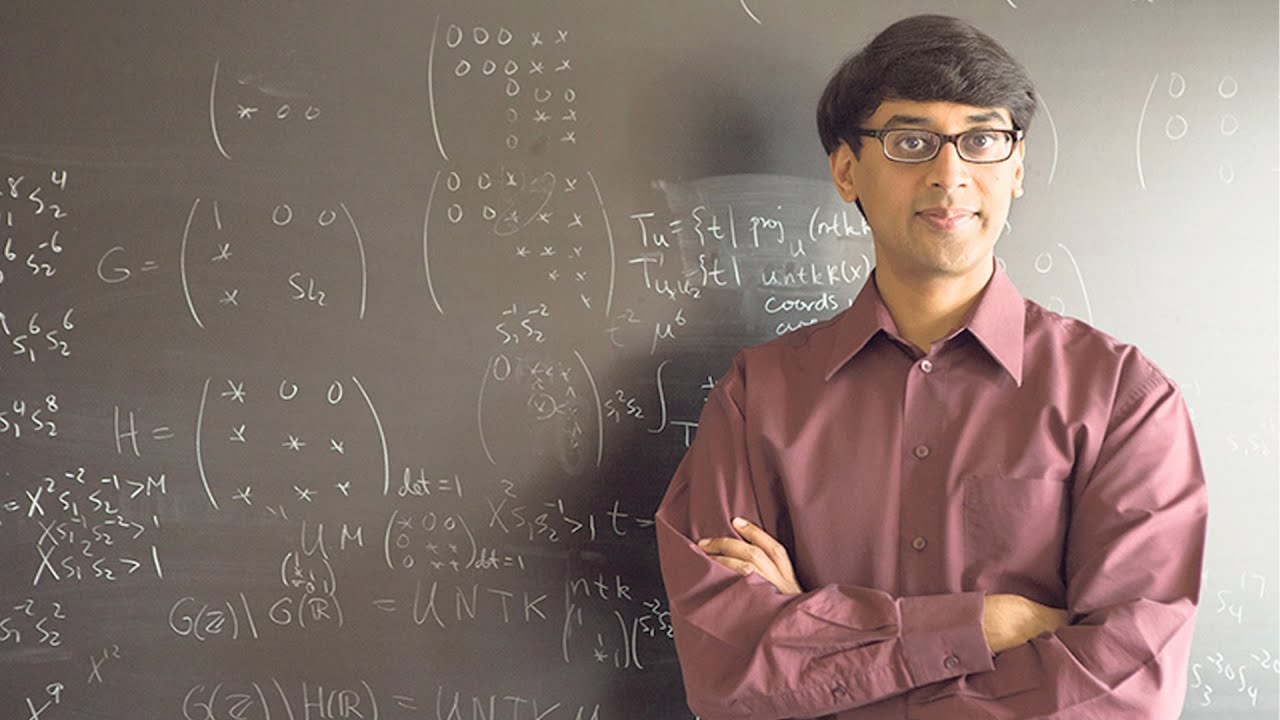Musician of mathematics: Who is Manjul Bhargava?
At the age of 28, he received the title of professor at Princeton University. He is known as one of the youngest scientists to achieve this title. Writes popular math articles for the general audience.

Manjul Bhargava was born in Canada in 1974 to an Indian immigrant family. One of the most important characters influencing his life is his grandfather, an Ancient Indian historian and linguist, who taught him Sanskrit. In addition, he has his mother, a mathematics professor, who taught him to play the tabla, an Indian instrument, at an early age.
Bhargava, who devoted a long time to tabla studies, had a remarkable skill in this field at the age of 12. According to Bhargava, mathematics and music are two branches of art whose languages are different from each other. The language of music attracts many people, while mathematics is attractive only to those who know its language.
Although Bhargava thinks of music as a profession, his love of mathematics prevails over time. He started his mathematics education at Harvard University, did important research in a short time, and published various papers. Contrary to the usual, besides his successful academic life, he also draws attention as a very social person.
Manjul Bhargava (born 8 August 1974) is a Canadian-American mathematician. He is the Brandon Fradd, Class of 1983, Professor of Mathematics at Princeton University, the Stieltjes Professor of Number Theory at Leiden University, and also holds Adjunct Professorships at the Tata Institute of Fundamental Research, the Indian Institute of Technology Bombay, and the University of Hyderabad. He is known primarily for his contributions to number theory.
In 1996, he received the Frank and Brennie Morgan Award given to outstanding undergraduate students by the American Mathematical Society. This is the start of his flawless mathematical career. He completed his doctorate in number theory at Princeton University with the advice and supervision of Andrew Wiles.
Afterward, he solves the problem that is mentioned by Gauss and has been waiting to be solved for 200 years. In this way, he put his name among the leading mathematicians in the field. He approaches Gauss's work in a different way from what he and other mathematicians see possible.
His work entails a prestigious position at the Clay Mathematics Institute. He teaches for one year at Harvard University and at the Clay Mathematics Institute. At the age of 28, he received the title of professor at Princeton University. He is known as one of the youngest scientists to achieve this title. Bhargava also has a good educator identity. How to explain mathematics better and how to capture the student's interest is one of the problems in his mind. Writes popular math articles for the general audience.
Manjul Bhargava Wins Fields Medal
At Princeton, he began to work on the committee to reorganize the mathematics curriculum. In this way, his goal as an educator begins to take shape. The department's introductory course focuses on a single topic; students are ignorant of other options and applications of mathematics. The department loses many talented students in the first place. For this reason, he begins to teach the "Introduction to Mathematical Thinking" course, which he thinks may be of interest to both students who plan to study mathematics and students from other departments.
Manjul Bhargava was awarded the Fields Medal in 2014, just days after his 40th birthday. As you know, there is no Nobel Prize in mathematics. The Fields Medal being awarded instead is considered an honor. The award was based on his work in number theory, in an area called quadratic forms. His interest in the subject came partly from the rhythms he learned to play on the tabla and partly from the Sanskrit poems he read. He had managed to bring two separate hobbies together.
Bhargava has also done studies on linguistics and has published many researches in this field. He also continues to work on proving the famous Birch and Swinnerton-Dyer conjecture, a problem with elliptic curves, for which the Clay Mathematics Institute has offered a million-dollar prize. Bhargava is the recipient of the SASTRA Ramanujan and Clay Research Award (2005), the AMS Cole Award (2008), and the 2014 Fields Medal.
